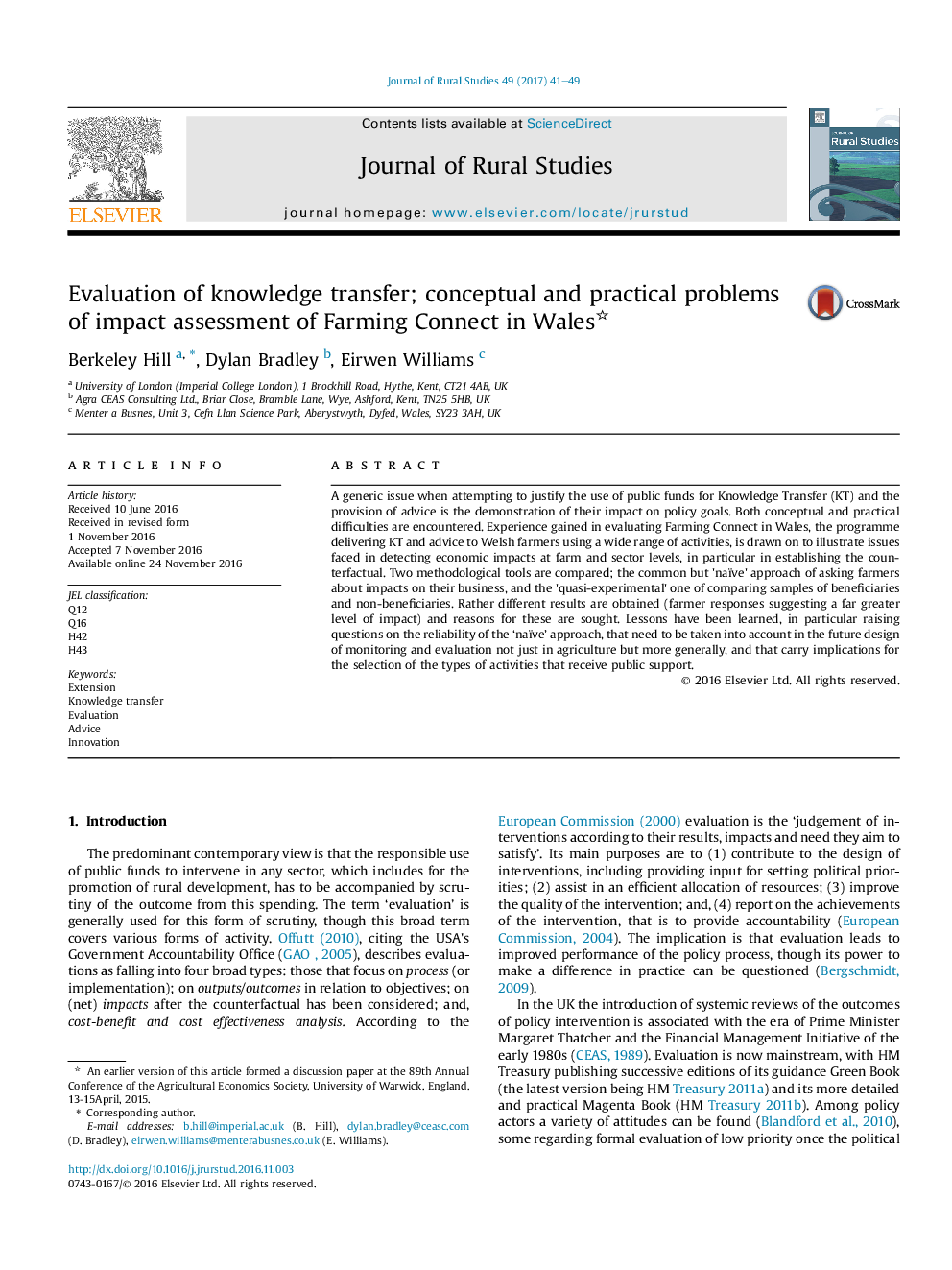| Article ID | Journal | Published Year | Pages | File Type |
|---|---|---|---|---|
| 6460298 | Journal of Rural Studies | 2017 | 9 Pages |
A generic issue when attempting to justify the use of public funds for Knowledge Transfer (KT) and the provision of advice is the demonstration of their impact on policy goals. Both conceptual and practical difficulties are encountered. Experience gained in evaluating Farming Connect in Wales, the programme delivering KT and advice to Welsh farmers using a wide range of activities, is drawn on to illustrate issues faced in detecting economic impacts at farm and sector levels, in particular in establishing the counterfactual. Two methodological tools are compared; the common but 'naïve' approach of asking farmers about impacts on their business, and the 'quasi-experimental' one of comparing samples of beneficiaries and non-beneficiaries. Rather different results are obtained (farmer responses suggesting a far greater level of impact) and reasons for these are sought. Lessons have been learned, in particular raising questions on the reliability of the 'naïve' approach, that need to be taken into account in the future design of monitoring and evaluation not just in agriculture but more generally, and that carry implications for the selection of the types of activities that receive public support.
